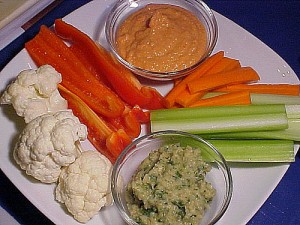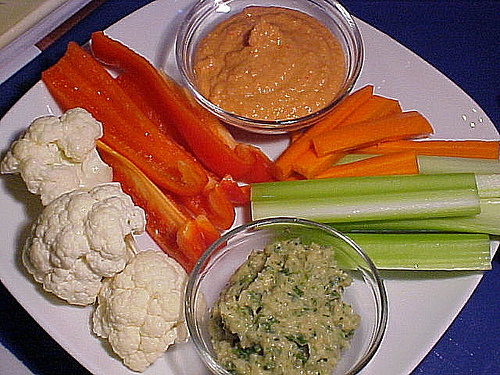Let’s begin with a fair assumption that if you’re reading this article, your “awareness-meter” around food and healthier lifestyle choice is already switched on and working at a pretty decent level. Sure, there’s no end to the better choices all of us can make along the continuum regarding food and its consequence on our planet. But for argument’s sake, recognize that you’re already way ahead of the curve for much of America.
Last article (Flip the Switch ON), I discussed the two basic pathways that engender a relationship with real food: the external path, which relies upon exposure and education, and the internal visceral path, which helps you develop a respect for the interdependence of life. In one way or another, your current relationship with food most likely reflects the confluence of these two.
Now imagine you are less fortunate. Your life opportunities haven’t granted you repeated exposure to healthy food choices nor the enriching experiences of spending regular time out of doors in parks or nature, so you’ve not bonded with the natural world and its rhythms. The vital connection to your body, the desire to care for it and not violate or abuse its natural integrity with a diet of empty calories and junk food, has not become inherent. You have not yet been able to realize that what you are eating isn’t FOOD.
The default that rules the game of American food and health is our culture.Unchallenged, one’s environment wins (in determining our lifestyle) and lower income areas are supported with ubiquitous fast-food crap. At best, the corporate guise of care under the name of nutritionism tries to educate, through advertisements, food packaging labels, magazine and news stories of the latest wonder food component.
 Where there’s a lack of affluence (which let’s admit, buys education, exposure, and opportunity) there’s an abundance of unhealthy fast food and unfortunately these convenient offerings become the norm. Its gravitational pull is huge – you try fighting it without good resources and a supportive environment (socially and otherwise).
Where there’s a lack of affluence (which let’s admit, buys education, exposure, and opportunity) there’s an abundance of unhealthy fast food and unfortunately these convenient offerings become the norm. Its gravitational pull is huge – you try fighting it without good resources and a supportive environment (socially and otherwise).
Thank you Mark Bittman, for asking the question,”How do you change a culture?” in Is Junk Food Really Cheaper (New York Times, 9/25/11). Well, the culture is, of course, characterized by its most powerful and defining voices and, with regard to our food system, we know the ethos has been shaped by the greedy corporate giants.
However, we are inching towards a tipping point. Our fast food culture and agri-farming practices are so rotten for us, the animals, and the land, that the collateral damage is unsustainable. Illness abounds and what system can support that? Many people are sick of it, (and even more from it), and those that can, are NOT TAKING IT ANYMORE. They have the awareness and ability to disconnect as much as possible or desirable.
What about the less fortunate members of our society? How can we change the culture for them if they don’t have the resource yet to change it for themselves? Yes, various educational school programs are actively teaching young people to garden and cook. And yes, some excellent city wide initiatives are offering affordable groceries for low-income people and bringing fresh food outlets into underserved areas. But we need much, much more to change our culture.
Change needs to come from all directions, and the more we do to foster the change we seek, the faster a positive zeitgeist will occur. Even if our personal efforts don’t immediately and directly reach those most disadvantaged, the ripple effects of our actions will trickle through the mainstream, and the outer currents will help buoy up society. Greater awareness begets greater action and ever more affect in the right direction.
 Here’s an idea whose time may have come. Why not support the cultural shift to healthier eating by changing our reward and celebration system via junk food at work and in our school classrooms? How often is there junk food at your office, in your teacher’s room, at the kitchen hub of your workplace? I don’t mean for this to turn into a George Carlin routine, but how many times have your brought those junky bakery cookies you’ve been “gifted” with to the office, rather than putting them where they belong – in the garbage? “Can’t bear to throw them out, so I’ll just bring ’em to work. People there eat anything.”
Here’s an idea whose time may have come. Why not support the cultural shift to healthier eating by changing our reward and celebration system via junk food at work and in our school classrooms? How often is there junk food at your office, in your teacher’s room, at the kitchen hub of your workplace? I don’t mean for this to turn into a George Carlin routine, but how many times have your brought those junky bakery cookies you’ve been “gifted” with to the office, rather than putting them where they belong – in the garbage? “Can’t bear to throw them out, so I’ll just bring ’em to work. People there eat anything.”
We would do far better if the time spent eating garbage, even good homemade desserts, was put toward a new kind of shared experience. How about taking those 15 minutes for a short group walk (even up and down the stairwell), joke swap, or birthday story at the office. Disconnect junk food from work and connect people to each other via some healthier interactive means. If you must have food, upgrade it along the continuum. Have real food. Hummus, veggie sticks, healthy crackers, a little cheese, nuts and simple fruit.
And in the classroom? Instead of Mom’s cupcakes or Dunkin’ doughnut holes for Billy’s birthday, why not the same time devoted to a class game, a riddle, reading an ongoing story all year from a wonderful book, or singing fun song?
As the Buddha says, “Be a light unto the world.” Let’s shine by our example and raise the bar.
And as Nike says, “Just do it!”
Please share the way you’ll help change our culture on this issue.
Until next time,
Ina
________________________________________
Photo credits, used with permission under Creative Commons license.
Hummus Plate – serenejournal
Big Mac Tray – yum9me

